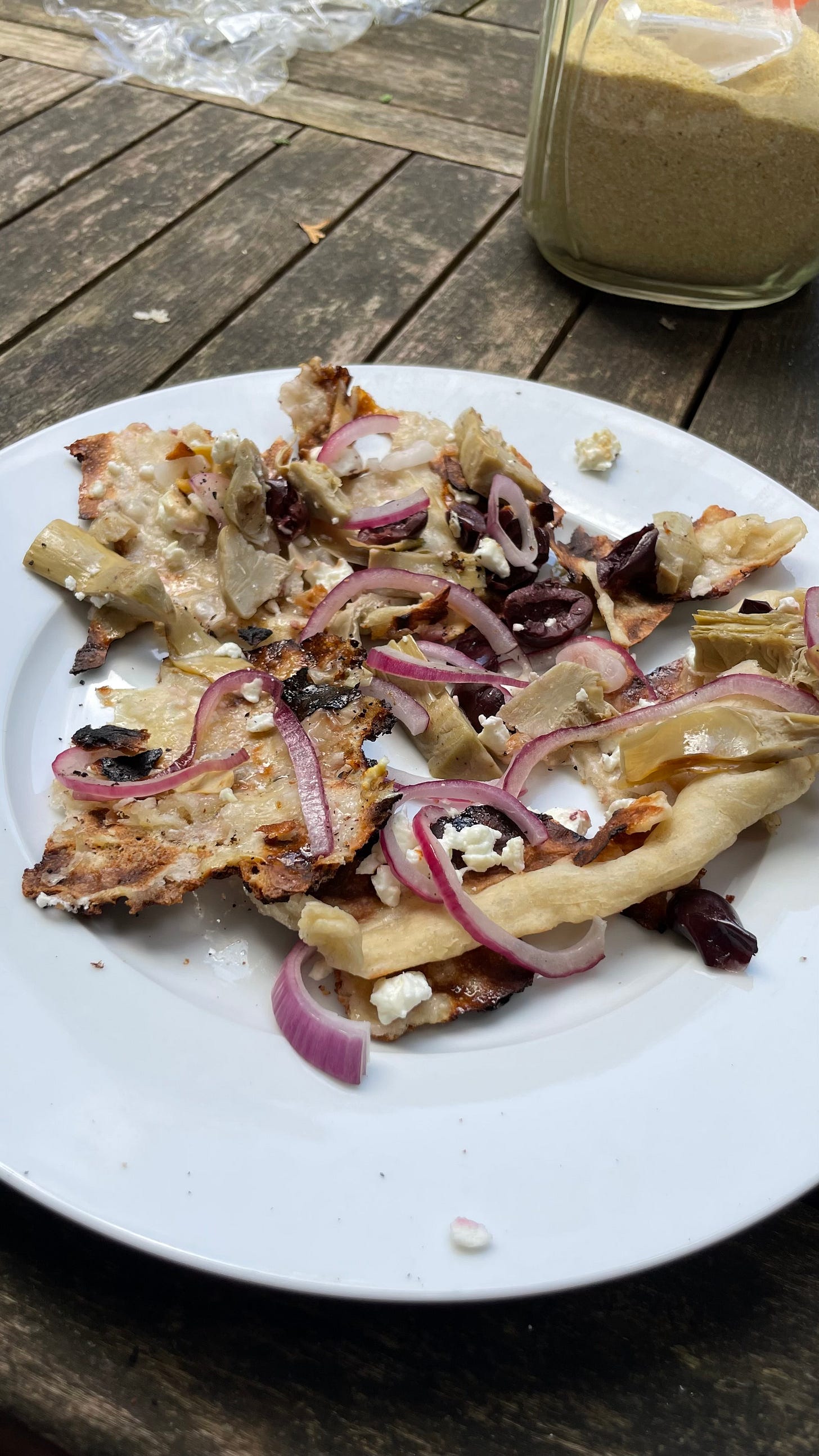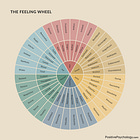My main thesis when it comes to apologies is that they are a good indicator of the health of a relationship. If I can apologize well, it means that I have a good understanding of my values, which allows me to know when it’s appropriate to feel guilt.
It also means have compassion and respect for both me and the other person. Finally, it means I have enough self-love to not let the feelings of guilt spiral into feelings of shame and to feel the guilt enough to change my behaviour for the better. I suppose by saying that apologizing is hard I’m admitting to feeling a good deal of shame, but that isn’t surprising given what I wrote last week.
So, given that I’m still not great at apologizing and I know multiple people who are also not great at apologizing, how can I make it easier for all of us?

Why is apologizing so hard?
Through brainstorming, I have come up with ten reasons that might make it hard to apologize. Some of these I relate to and some of them I don’t. But I’m going to try to think of solutions to all of them so that in the future I can have more compassion for my experience as both an apologizer and apologizee. I’m purposefully using this made-up word rather than forgiver because it is my strong opinion that a person is never required to forgive, which I will cover in a future newsletter.
I might not have considered my own needs and boundaries and might not be aware of the need to respect the boundaries of others.
I’ve written about how I’ve been offended by people’s boundaries in the past because it felt like rejection instead of a way for the other person to protect their needs. I suspect many people have not sat down to create a list of their needs and how to create boundaries to protect these needs.1 Until I did last fall, I had a really hard time with apologizing too much, wanting apologies too much, not wanting to look at the situation from the other side, and not feeling compassion for the other person.
Possible solutions: Consider the needs and boundaries of both people. Practice setting my own boundaries.
I might believe that my wants are equal to others’ needs and I don’t need to apologise for my desires.
In my experience, this is quite common in our culture. So much of self-help and a lot of therapy is focused on the individual, separate from living in community. I think most of us are bombarded with messages of shame, so we might want to assert our independence by doing what we want, no matter the cost to others. We don’t want to be told what to do, right? So much is out of our control, so it can feel good to assert some control by doing what we want.
Possible solutions: Consider my needs and separate them from my wants. Can I forego something I want so that the other person can have their needs met? It’s an important question to ask. The other part of the solution is to make a list of all the ways I benefit from living in a community and from the work of others to help remind myself that I couldn’t survive on my own and it’s in my best interest to sacrifice some of my wants for others’ needs or find a way to accommodate both.
I might believe that making mistakes is shameful and that apologizing is admitting that I am a bad, shameful person. I do not want to feel shame, so I do not apologize.
Perfectionism is so damaging.
Possible solutions: Remember that to be human is to make mistakes. Mistakes are part of the learning process – we can’t be prodigies in every aspect of living, so becoming comfortable with making mistakes is essential for living a happy life. The other thing to remember is that shame can grow from letting guilt fester, so the faster I feel my guilt, decide to change my behaviour, and apologize, the more likely I am to keep from feeling shame. Apologizing isn’t admitting that I’m a bad, shameful person; it’s acknowledging I’m human and value my relationships.
I might have been socialized to never express my feelings and be vulnerable.
This is tough and applicable to many people.
Possible solutions: Start by expressing feelings in a journal and then find a safe person to practice with, whether a friend or professional therapist. I can give myself positive feedback and compassion for working on this skill. I have always been a very emotional person so I’m not sure if this is a good solution, but I will try to be more compassionate with people who seem “emotionally constipated” and need to learn how to express emotions. I will try to be a safe person for them to be vulnerable with.
Apologizing involves uncomfortable emotions that I might not want to feel.
The more I think about apologies and the state of the world, the more I see this as a big problem. It’s easy for many of us to ignore uncomfortable emotions, and it’s often easy for things to snowball into an unignorable crisis. Paradoxically, it can be more difficult to handle problems when they are more manageable if we’re trying to avoid uncomfortable emotions!
I’m thinking about some of my experiences with mental health care. In Ontario and British Columbia, the two places I’ve lived, psychologists and therapists aren’t covered by our public healthcare system, and many private insurance plans only cover a handful of appointments. Psychiatrists are covered, but the waiting lists are often months-long. In the past, I didn’t get treatment while I was mildly ill, and because I didn’t get treatment, my mild illness turned into a severe illness requiring hospitalization. After I was discharged from the hospital, I was set up with a psychologist, an occupational therapist, and group therapy – everything I needed to potentially prevent the crisis from happening!
I think it’s common for something similar to happen with our conflicts and emotions. I might, for example, spend months feeling irritated at my partner creating and leaving a puddle on the bathroom floor after showering, but not say anything to avoid an uncomfortable conversation, until finally exploding at him in anger after one too many wet socks experiences. This is something that happened often with my ex, except I never got to the point of exploding in anger; I seethed silently instead. I wish I could go back in time and bring it up though – not only might it have made living together more pleasant and so I experienced fewer wet socks2, but it would also have been good practice for the more important conversations we never had that probably could have either saved our relationship or lead to an earlier and more compassionate breakup.
Those are examples of avoiding the uncomfortable emotions needed to broach the subject of asking for an apology. When I want to avoid uncomfortable emotions after someone has brought up a complaint, I might quickly say I’m sorry and try to switch the subject rather than listen to the pain I’ve caused. I might counter with a complaint of my own or tell the other person it wasn’t a big deal, they are overreacting, or it was just a joke. All of these could be ways to avoid feeling guilt that I turn into shame.
Possible solutions: Remember, again, that part of being human means I will make mistakes. I can feel guilt without turning it into shame. It isn’t fun to feel uncomfortable, but it doesn’t last forever. Except for abusive situations, uncomfortable conversations aren’t dangerous, they are just uncomfortable. They don’t last forever, and they are survivable. I can build up my self-compassion practice so that I have a bed of love and positive reminders to lie in that tell me I don’t need to feel shame when apologizing.
Apologizing involves feeling emotions that I might have difficulty identifying.
I’ve mentioned alexithymia before. It can be an obstacle in apologizing when it makes it difficult to know what I’m feeling or how to express what I’m feeling. Maybe I do feel remorse, but I don’t know how to identify that or express it.
Possible solutions: Like I previously wrote, I’m working with Wheels of Emotions and journalling to better identify and express emotions.
I can tell the other person I will need breaks in the conversation so that I can match up my thoughts and feelings before responding.
I might believe that if I didn’t cause harm intentionally, I do not need to apologize.
It feels so bad to be on the receiving end of “I didn’t mean to hurt you” or “I’m sorry if I offended you”. Apologies shouldn’t contain the word “if”! I think we say this when we believe that mistakes equal shame. It’s a defense mechanism to protect us from hating ourselves and to show that we aren’t bad people. But it takes the focus away from the actual harm that we accidentally caused, and I hope I never say it again. When it is said to me, I feel so dismissed and unimportant. I want acknowledgement that my pain matters – that I matter. I want to always make sure I let the other person know they matter when I make mistakes.
Possible solutions: I can internally give myself compassion for making the mistake, while making sure to acknowledge the pain of the other person so that they don’t have to comfort me as that shouldn’t be their job in this scenario. After I listen to the pain I have caused, I can explain how I will try to be more intentional in the future so that I don’t make the same mistake again. If I need to talk with someone about the shame I feel, I can choose a different friend later.
The pain and big emotions might make me shut down and temporarily lose the ability to communicate.
This happens to me a lot. This is how I biologically react to stressful situations (the freeze in fight, flight, or freeze), and I need to help myself feel safe before I can communicate.
Possible solutions: I need to immediately take the time and space I need without feeling guilty or trying to force myself to speak. Once I feel safe, I can explain the situation to the other person and hope that they have compassion and understanding and the desire to maintain a safe atmosphere during the conversation and then move on to listening to their pain so I can apologize. I can also tell the people important to me in advance that this is how I often react to stress, so please don’t take it personally if I shut down at the first indication of conflict and please don’t pressure me to respond right away, even if I do ultimately need to apologize.
I much prefer to communicate by the written word than through speaking, but I know that others much prefer speaking to writing. A solution could be to explain my preference to write rather than speak and see if that would work for them. If they prefer to speak, the compromise could be for them to speak and for me to write.
My schedule might be too full for the amount of time it can take to apologize well.
I’ve already listed some of the ways it can take time to apologize well – I might need time to feel safe enough to have the conversation. I might need time to identify my emotions. We might have ignored smaller problems that grew into a large problem and need time to discuss the nuances of the conflict. We might need time to discuss our values, needs, and boundaries to come up with a solution.
One or both of us might be so busy all week and not the time or energy for the necessary conversation.
Possible solutions: Tell the other person that I want to give the conflict the attention it deserves and to do that I’ll need to schedule a time for it and then look at our calendars right away to find a time that will work. While having the conversation, I could put my phone on Do Not Disturb so that I don’t receive distracting notifications. If I find myself in a relationship again, I would like to implement a monthly or even weekly “Check-In Date” where we share what we’re feeling, especially any small annoyances that might turn into big obstacles if they are ignored.
I might believe that I am more important than others and will not apologize to anyone I don’t respect.
This is something I imagine most of us believe to some degree regarding certain groups of people, even if it doesn’t feel good to admit it. But if the privileged and powerful didn’t think this way, we would have a more just and egalitarian world, wouldn’t we? For example, many people have demanded the conditions of long-term care homes be improved, especially after so many residents died at the beginning of the pandemic. But the government and private owners balked at spending money and cutting into profits to save the lives of these aged citizens. How can that be anything but a refusal to apologize because the powerful don’t respect these residents? There are numerous examples of this for all marginalized groups, including people with addictions, people without homes, people with disabilities, people living in poverty, and people with criminal records. In one of the emails from my ex, he wrote about the incompatibility of our lifestyles by saying, “That's probably classist and ableist, but it's where I am at this moment”. It hurt to read that, but at least it was honest. I wouldn’t mind that kind of honesty from others who don’t want to protect me, although obviously my preference would be for them to change their beliefs and actually respect me as a disabled person.
Possible solutions: I don’t know what the solution to this is, other than for the disrespected masses to join together and demand policy changes. Governments often have to be dragged kicking and screaming to do the right thing, but eventually progress does happen. I can’t force anyone to respect me, but I can stand up for myself. I can stand up for others. I can play the long game and patiently work for a better future.
Are there groups of people I hold myself superior to? Shamefully, the answer is still yes. I’ve written about propping up my self-esteem with my intelligence and looking down on “the stupid”. I feel shame about that and I’m working on changing my language and beliefs. I probably feel superior to many people with criminal records, which I will interrogate in a future newsletter as that is a subject that is quite relevant to apologies. I’ve put in effort to diversify who I listen to and learn from – this is one way social media has been wonderful for me. That might be the best way as an individual I can solve the problem of my own feelings of superiority – look to the common humanity I have with everyone, rather than seeing our differences first.
Is there anything I missed? I’d be happy to learn of any tricks and tips others have on how to overcome the obstacles that get in the way of apologizing.
This would be a good lesson to be taught in schools!
A sensation I haaaaate






